On Tuesday, owner Craig Leipold announced the Minnesota Wild had fired Paul Fenton as the team’s general manager after one full season at the helm (from ‘Wild owner Craig Leipold ‘missed’ on fired GM Paul Fenton,’ Twin Cities Pioneer Press, 07/30/2019). Leipold was not happy that the team missed the playoffs last season for the first time in seven years, and he still believes the Wild should be annual playoff contenders. However, Fenton started a partial rebuild at the 2019 trade deadline, trading away the team’s core players and any chance of a playoff berth for a younger, unproven crop of players in attempt to create his own core.
Clearly, Fenton and Leipold did not see eye-to-eye on the current status of the team, and Leipold wanted a GM who shares his optimistic outlook for the team in the immediate future. Although Leipold’s belief that the Wild are still contenders is misguided due to the uninspiring group of players the team currently has, Fenton certainty did not help the roster or necessarily set the team up well for future success.
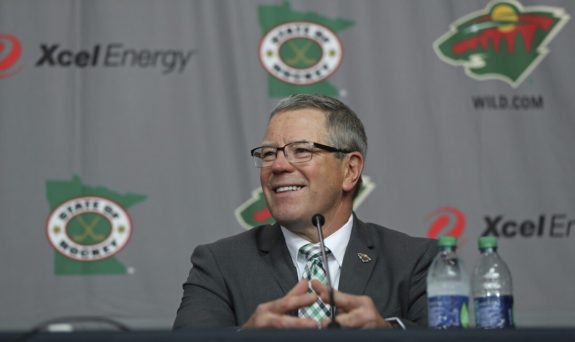
The first monumental event under Fenton’s reign, he did not even get to take part in: the 2018 NHL Entry Draft. It was still Chuck Fletcher’s scouts/staff running the draft, and by the way they drafted in the first round, it seems they were lacking inspiring leadership – reaching for Filip Johansson, who was not supposed to go until the late rounds of the draft (by the way, they made up for this pick with Connor Dewar and Jack McBain). Johansson had a whopping four points and was minus-10 in the Swedish Elite League this past season, and the Swedish World Junior Coach claimed he had never heard of the player at tryouts. Fenton receives a lot of criticism for this pick, but fans who believe he is at fault are misinformed.
Fenton Re-Signs Dumba and Zucker
Fenton’s first significant moves of the 2018 offseason were solid: He re-signed Matt Dumba to a five-year, $30 million contract, Jason Zucker to a five-year, $27.5 million deal, and inked Greg Pateryn for three years and $6.75 million. Dumba was leading the NHL in goals by defensemen this past season, and was arguably the Wild’s most promising roster player, before he got injured fighting and missed the rest of the season. Zucker was coming off a 33-goal, 64-point season, and Fenton was able to sign the fan favorite to a relatively cheap deal considering his performance in 2017-2018. Pateryn was a solid third-pair, gritty defenseman for the Wild last season, and his depth proved crucial after Dumba went down.
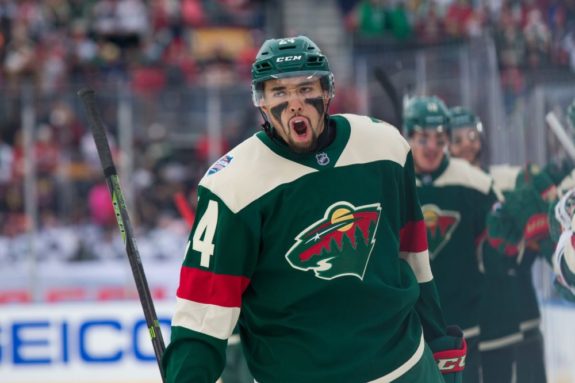
All three of these signings were beneficial to both the short-term and long-term success of the team. Additionally, Fenton bought out Tyler Ennis, who did not pass head coach Bruce Boudreau’s height or weight requirement, and was one of many depth forwards not contributing anything offensively. Fenton looked like he had done a solid job coming into the 2018-19 season despite not making any headlining moves.
Unsurprisingly, due to lack of talent, the Wild were a bubble team approaching the deadline, and Fenton’s first news-worthy trade was a good one. He traded Justin Kloos to a desperate Anaheim Ducks team in exchange for Pontus Aberg, who had 19 points (11 goals) in 37 games at that point, on Jan. 16. Kloos was a low price to pay for a young scorer with a lot of potential, but unfortunately, Aberg did not have the same scoring touch in Minnesota, and he missed a lot of time due to injury.
Fenton Starts to Build His Own Core
Fenton’s next trade was a real head-scratcher. A day after the Aberg trade, he traded Nino Niederreiter, one of the Wild’s crucial core players, for Victor Rask, a clear downgrade who had never broken the 50-point mark. Both players are 26 years old, and Rask’s contract is only $1.2 million less per year, so this was not an attempt to get younger or save significant cap space either. Fenton must either have been under significant pressure from Leipold to make a trade, or he truly thought he was getting a good return for Niederreiter.
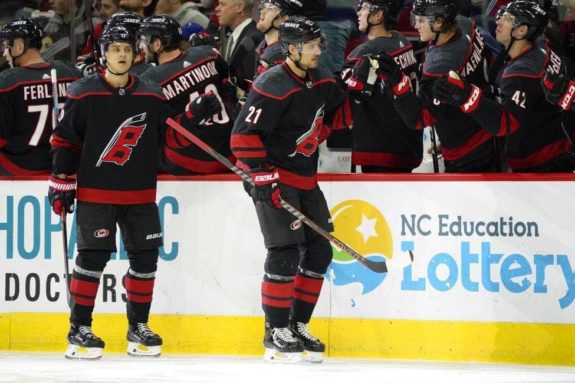
Clearly, he did not: Rask finished the season with nine points, and Nino was instrumental as a top-pair winger during the Carolina Hurricanes’ run to the Eastern Conference Final. Oh, and the Hurricanes also later reported they were planning on buying out Rask if they could not trade him, so from their perspective, Fenton essentially paid them to take Niederreiter. After this trade, many fans (and I’m sure Leipold) started questioning Fenton’s ability as a GM.
After a decent trade for Brad Hunt, whose role Louie Belpedio could have filled internally, Fenton traded Charlie Coyle for Ryan Donato. In hindsight, this was probably a mutually beneficial trade, as Donato had 16 points in 22 games for the Wild and was arguably the team’s best player down the stretch. Coyle had a poor end to the regular season, but really turned it up in the playoffs, contributing nine goals and 16 points in 24 games while being crucial to to the Boston Bruins’ Stanley Cup run. Although Donato showed lots of potential, he is still an unproven player, and this was a sign to Leipold that Fenton was trying to rebuild. This trade was possibly the second strike against Fenton.
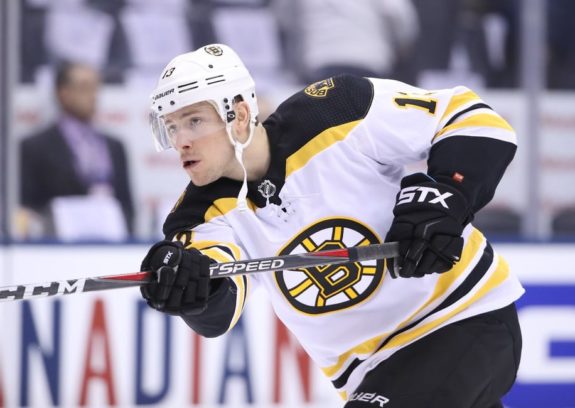
Then, just before the deadline, Fenton traded Mikael Granlund, arguably the team’s most talented forward, for Kevin Fiala, a player he obviously had a connection with and liked from his tenure with the Nashville Predators. Granlund had 67 points for the Wild the previous season and was a proven commodity at this point in his career. Fiala had shown a lot of potential, but he was inconsistent and was known for making bone-headed plays. Since Granlund’s contract was expiring at the end of the 2019-20 season, this was probably an attempt by Fenton to get what he believed to be a good return for a player the Wild were most likely not going to re-sign while building his own core.
However, it was not in line with Leipold’s agenda to make the playoffs, and he saw this move as another dig against Fenton. At the time, it looked like David Poile, Fenton’s former boss, had pulled a quick one on his former protégé, but in hindsight, Granlund did nothing for the Predators, and Fiala has the potential to be an impact player for the Wild in the years to come. Also, just before the trade deadline, Fenton smartly signed Eric Staal to a two year, $6.5 million “discount” contract extension, which provided the team with a top-two center, a scoring touch, and a great leader for the future. However, to this point, his bad trades had characterized his time as GM, and the Wild were a worse team than at the start of the season.
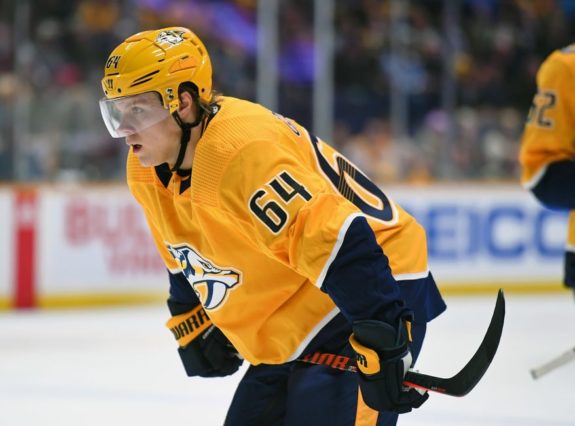
Fenton did add to the Wild’s prospect pool with the signings of Nico Sturm and Mat Robson. Sturm was able to come into the NHL lineup right away, adding a valuable defensive presence to a lineup lacking Mikko Koivu. Fenton claimed this signing was like an additional first-round pick. Although I do not think that is true, Sturm has the potential to contribute to the Wild’s roster for a long time, and if he can improve his offensive production, be a top-six forward. Robson, a goalie from the University of Minnesota, had a great collegiate career, and has the ability to eventually start in the NHL.
Fenton’s Offseason Blunders
After the Wild missed the playoffs, it was obvious the 2019 offseason was going to be a definitive moment in Fenton’s reign, and there were a lot of opportunities to make a large change to the team: the entry draft, the plethora of quality unrestricted free agents, and the number of teams that had to re-sign restricted free agents with limited cap space that he could strike a deal with. However, Fenton’s big-name free agent signing was probably not the team’s first choice: Mats Zuccarello is a great energizer and secondary scorer, but in his role with the Wild, he will need to be a primary point producer, and he has never needed to fill that role in his career.
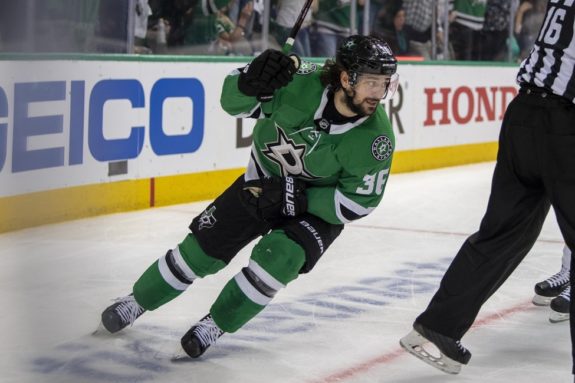
Missing out on Anders Lee, Joe Pavelski, and Matt Duchene, all who would have been more beneficial to the team, really hurt. Also, we will see if Zuccarello can even keep pace in Boudreau’s physical system/style of play. At the draft, Fenton made a quality first-round pick in Matthew Boldy, who should succeed in Boudreau’s system.
In the second round, Fenton also continued the Wild’s strategy of picking players with a Russian background, in an attempt to coax Krill Kaprizov over from the KHL, by selecting Vladislav Firstov. This was another quality pick, and I think in general, Fenton had a good draft.
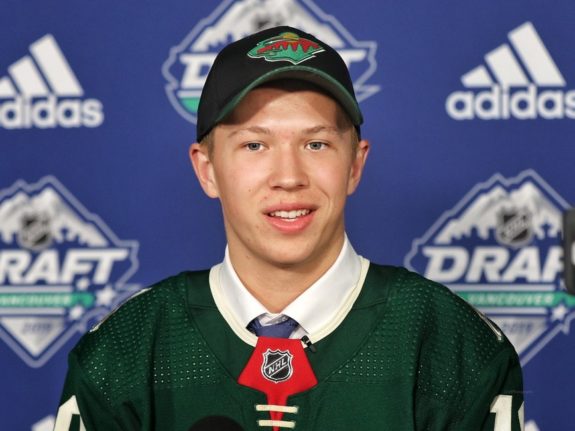
However, Fenton missed an opportunity to make his mark in the offseason by not trading one of the Wild’s quality defensemen for a top-six (or star) forward. I think the Toronto Maple Leafs would have been a prime target, and trading Jared Spurgeon or Jonas Brodin for Nazem Kadri or Kasperi Kapanen and a pick would have made a lot of sense for both teams. Also, Fenton had a chance to make a franchise altering move by trading Dumba and picks for Mitch Marner, a deal I think the Maple Leafs would have taken (before trading Kadri to make cap space).
This would have given the Wild the true scorer they so desperately need, and Marner on a line with Kaprizov (a pure finisher) would have been deadly. Additionally, Fenton fired the whole analytics department, canned beloved assistant coach Andrew Brunette, and hired his own son as head of amateur scouting. Overall, Fenton’s signing of Zuccarello will not be enough to give the Wild a fighting chance this upcoming season. Factoring in bad trades and a different outlook on the team, Leipold felt it was time to move on, and Fenton leaves the Wild in worse shape than when he came in.